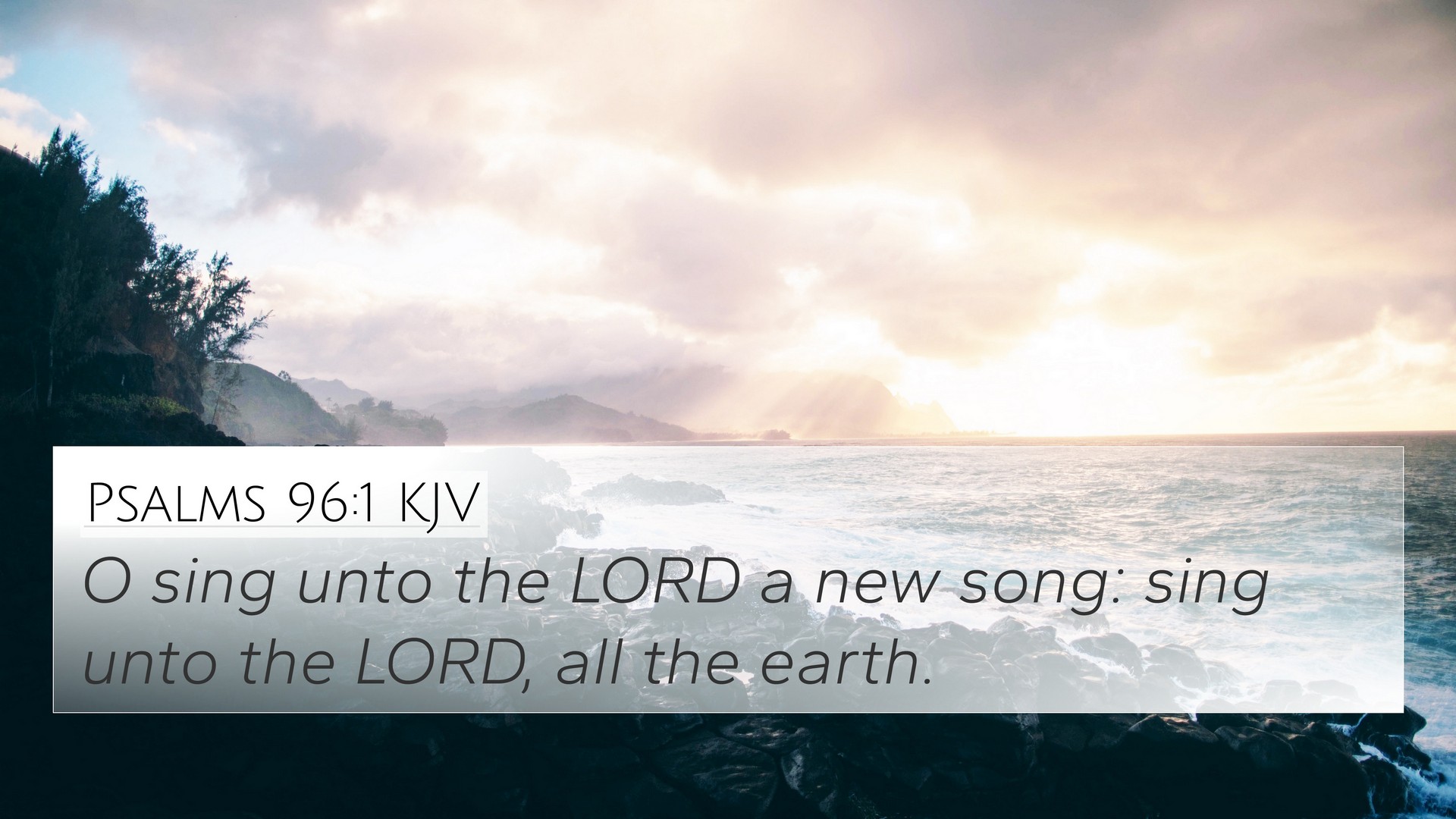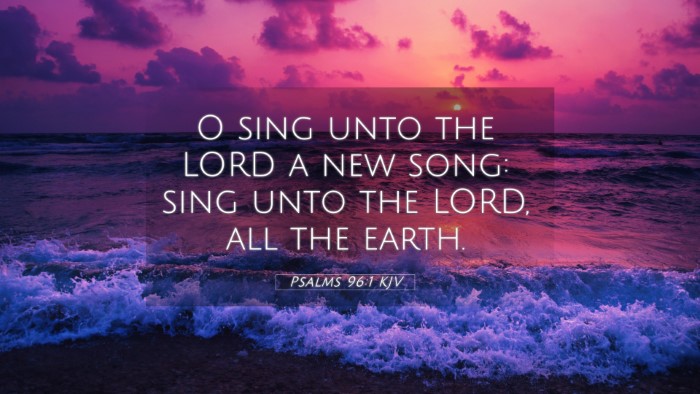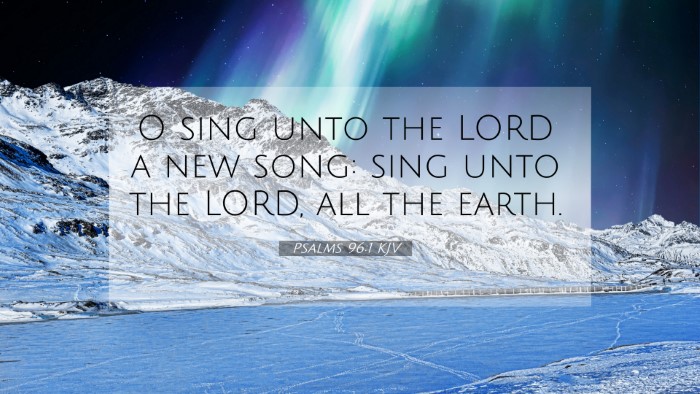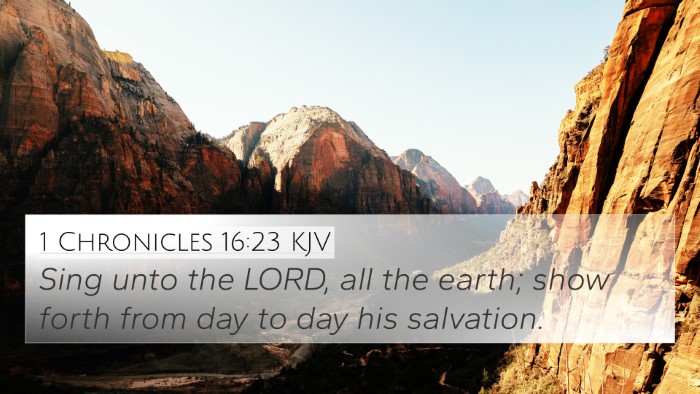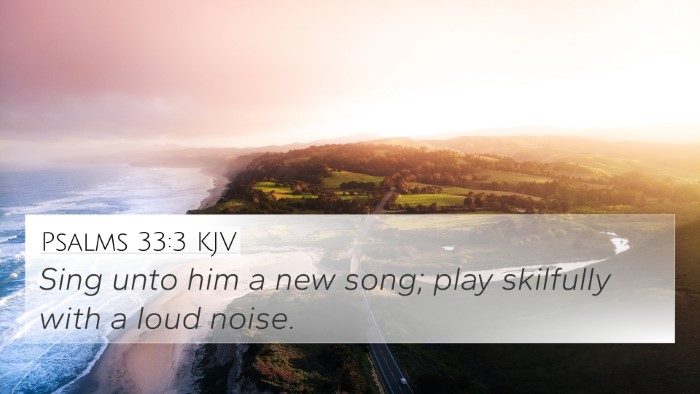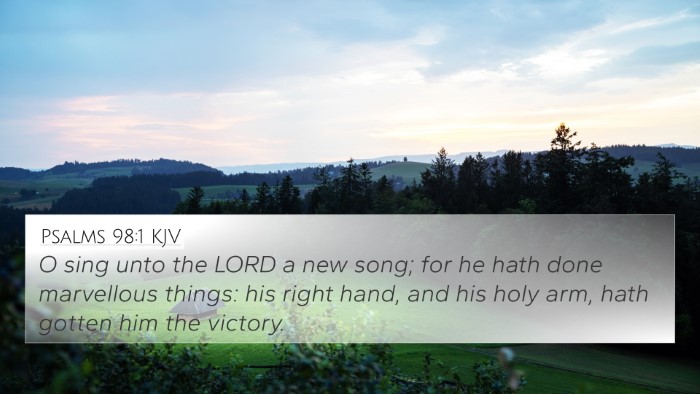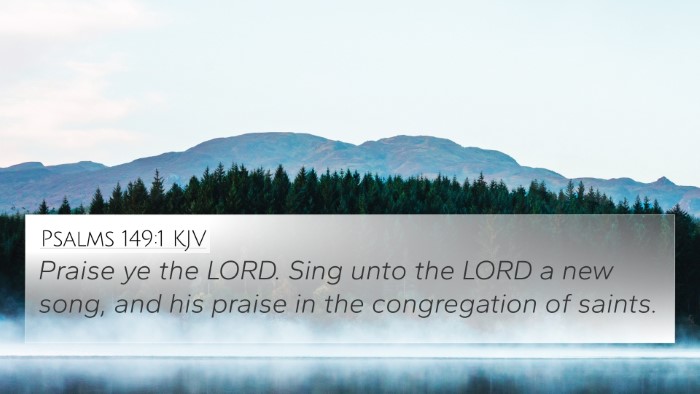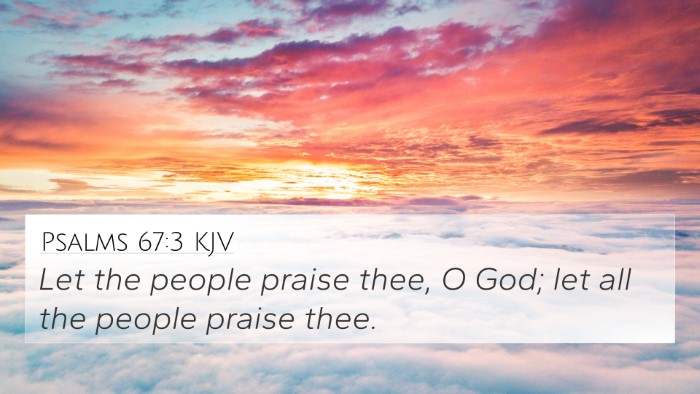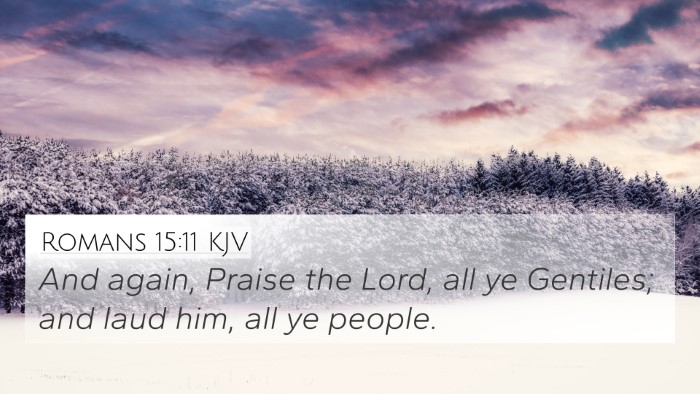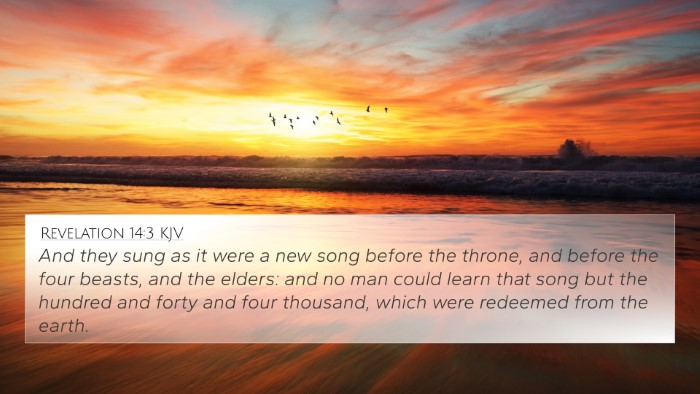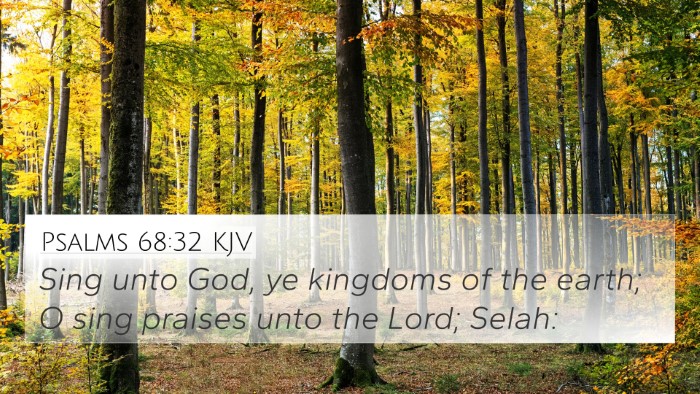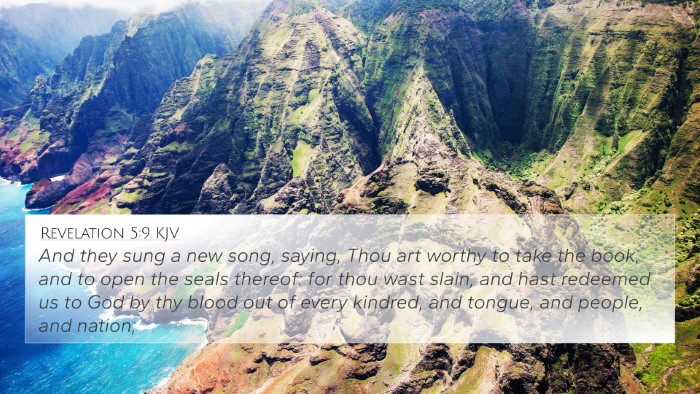Psalm 96:1 calls us to engage in a joyful act of worship, declaring, “Oh sing to the Lord a new song; sing to the Lord, all the earth!” This verse emphasizes the theme of praise and the universal call of creation to worship God.
The command to “sing a new song” signifies both freshness in worship and the ongoing work of God in the lives of His people. This not only suggests innovation but also gratitude for God’s continued blessings and mercies:
- Matthew Henry: Henry explains that the “new song” represents both a reflection of new mercies received and a response to new experiences of God's goodness. It encompasses themes of redemption and creation.
- Albert Barnes: Barnes emphasizes this call to worship as a communal activity, highlighting the necessity for all of creation—“all the earth”—to unite in song. This points towards a divine mandate for holistic praise, transcending cultural and geographical barriers.
- Adam Clarke: Clarke interprets the phrase as a joyous acknowledgment of God’s sovereignty and the anticipation of His ultimate reign during the coming age, aligning with eschatological expectations found throughout the Scriptures.
As we examine this verse, it becomes essential to consider its thematic connections to other scripture passages. Below are key Bible cross-references that echo the spirit of Psalm 96:1:
- Isaiah 42:10: “Sing to the Lord a new song, his praise from the end of the earth.” This verse similarly calls for a fresh expression of worship.
- Revelation 5:9: “And they sang a new song, saying: ‘Worthy are you to take the scroll and to open its seals...’” This verse reinforces the notion of a “new song” as a declaration of God’s worthiness in the grand narrative of redemption.
- Colossians 3:16: “Let the word of Christ dwell in you richly... singing psalms and hymns and spiritual songs...” This verse illustrates the importance of worship through singing in the Christian community.
- Psalm 33:3: “Sing to him a new song; play skillfully on the strings, with loud shouts.” This verse encourages a similar expression of worship and skill in our musical offerings to God.
- Psalms 149:1: “Praise the Lord! Sing to the Lord a new song, his praise in the assembly of the godly!” Again, we see the unity of the community in worship.
- Isaiah 43:19: “See, I am doing a new thing! Now it springs up; do you not perceive it?” This speaks to God’s power to initiate change and new opportunities, inviting worship in response to His works.
- Hebrews 13:15: “Through him then let us continually offer up a sacrifice of praise to God, that is, the fruit of lips that acknowledge his name.” The essence of praise as a continual act of worship resonates here as well.
Engaging with Psalm 96:1 prompts us to explore the connections between Bible verses deeply. This verse does not exist in isolation but rather contributes to an ongoing inter-Biblical dialogue about worship, praise, and God's majesty.
For those interested in cross-referencing Biblical texts, these tools can greatly enhance understanding. Using a Bible concordance can help locate verses that share similar themes, such as praise and worship in the Psalms or the New Testament.
The systematic use of Bible cross-references allows readers to appreciate how different parts of Scripture interact, bringing depth to our understanding of each verse's unique contribution to the wider narrative.
In conclusion, Psalm 96:1 serves as both a call to personal and communal worship and an invitation to reflect on God’s ongoing work. By engaging with this verse and its connections to other scripture, believers can cultivate a richer prayer life and worship experience.
For anyone looking to deepen their understanding of Bible verses that relate to each other, employing cross-referencing Bible study methods can illuminate these connections further, allowing for a holistic approach to God’s Word.
